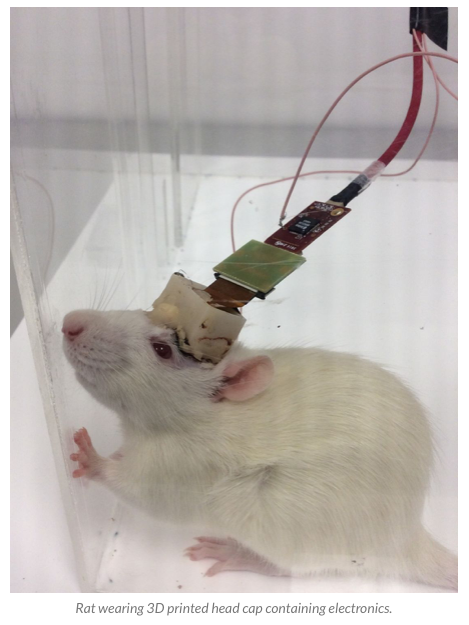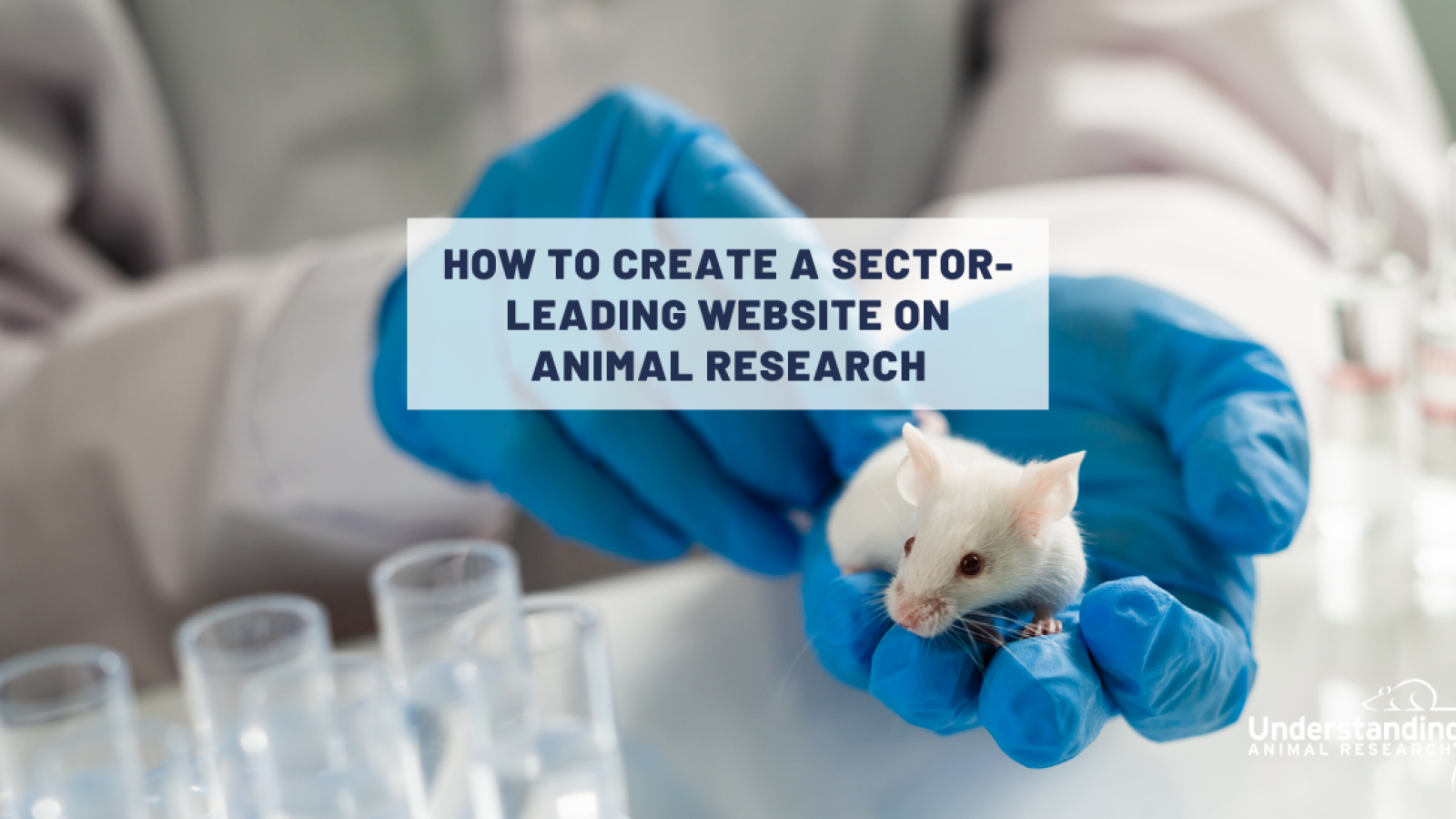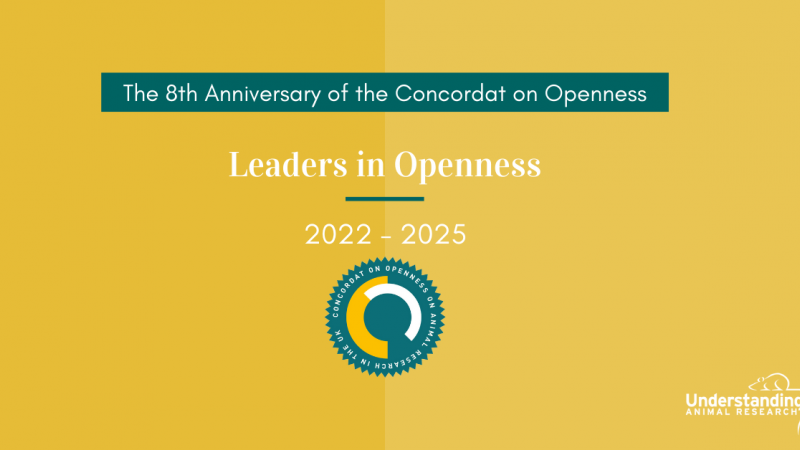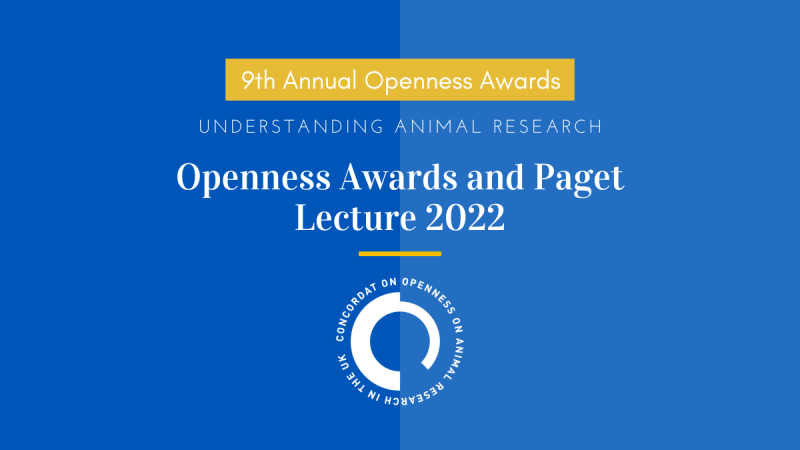More than 125 UK organisations including universities, charities, commercial companies, research councils, umbrella bodies and learned societies have signed the Concordat on Openness on Animal Research and are committed to helping the public understand more about animal research.
Part of being more open about animal research means showcasing the science on websites for anyone to see. In December 2021, the University of Cambridge received an openness award for its animal research website and continuing to raise the level of challenge in the stories they tell about their research. We believe this university’s website remains one of the best examples of a website about the use of animals in research.
The web pages were launched back in 2014 after the University first signed up to the Concordat on Openness and pledged to make information, data and research on animals publicly available.
“We tried to include as much information as we could on there. We made sure we talked about policy and the rational for doing animal research, the different species that we used, how we used them, some examples of projects, statistics with the number of species that we used etc. The goal was also to keep that information refreshed and up to date,” Craig Brierley, Head of Research Communications at Cambridge University, told UAR.
Recently, Jacqueline Garget was charged with the overhaul of the content of the website, to make sure the information was up to date, and to add new information. In particular, she wrote a feature about wireless limb control which involved work on rats."
 Brierley explained: “It is easy to be nervous and afraid to talk about animal research but there was no obvious backlash from being so open on our website. On the contrary. People working in the sector have been very impressed with the amount of information we have on there and how transparent we’ve been. Hopefully, it’s had an impact on the wider research and higher education community, highlighting openness and the kind of information that can be shared.”
Brierley explained: “It is easy to be nervous and afraid to talk about animal research but there was no obvious backlash from being so open on our website. On the contrary. People working in the sector have been very impressed with the amount of information we have on there and how transparent we’ve been. Hopefully, it’s had an impact on the wider research and higher education community, highlighting openness and the kind of information that can be shared.”
His main advice? Put the research into context. The bigger picture usually helps show why the animal research is done, why it is important and how it can change people’s lives.
Being open has helped the university deal with freedom of information requests (FOI) from animal rights organisations.
“We would make sure to respond in detail about - why we did animal research, why it’s important, what this particular study was, the context of this study, - which led to much more balanced articles in the media. Nowadays, these requests have largely died down. We do get the occasional FOI request, but we can generally just point people to the information that’s already up on our website,” explains Brierley. “Being so obviously open has meant that fewer people attack us for our animal research.”
According to Brierley, this can also be applied to the wider research community.
“There is safety in numbers. It was a huge effort to corral everyone to work together to push this agenda but it has clearly not only benefited institutions but also the quality of animal research and welfare. The way we join together to be upfront about what we do and why, has taken away the sting from anti-animal research activists’ stories. Nobody can make the claim that we are hiding information because we aren’t. It is all out there.”
Last edited: 27 April 2022 13:11




